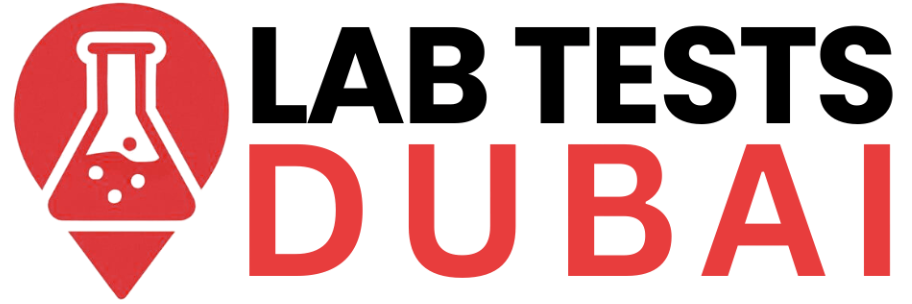
Creatine Test (Random Urine) – Accurate Kidney Function & Muscle Metabolism Analysis with Enzyme-Immunoassay
550,00 د.إ
The Creatine Test (Random Urine) measures creatine levels in urine to assess kidney function, muscle metabolism, and potential metabolic disorders. It helps detect abnormal creatine excretion, which may indicate muscle wasting, kidney dysfunction, or genetic conditions.
Sample Type : Random Urine
Methodology : Enzyme-immunoassay
TAT : 15 Days
Description
Creatine Test (Random Urine) – Accurate Kidney Function & Muscle Metabolism Insights
The Creatine (Random Urine) Test from Lab Tests Dubai is a specialized diagnostic tool designed to assess kidney function and muscle metabolism by measuring creatine levels in a random urine sample. Using advanced enzyme-immunoassay technology, this test delivers highly accurate and reliable results within 15 days, making it an essential resource for early detection of renal dysfunction, muscle disorders, and metabolic imbalances.
While creatinine is more commonly tested, creatine—its precursor—provides unique insights into muscle energy metabolism and early kidney filtration issues. Abnormal levels may indicate impaired reabsorption in the kidneys or disorders of creatine synthesis or transport, especially in pediatric or neuromuscular cases.
Whether you’re monitoring chronic conditions like diabetes or hypertension, investigating unexplained fatigue, or seeking proactive health screening, the Creatine (Random Urine) Test helps uncover hidden issues before they become serious.
Available across Dubai with home sample collection, this test supports preventive care, clinical diagnosis, and long-term health monitoring.
Why You Need This Test
Your kidneys and muscles work silently—until they don’t. The Creatine (Random Urine) Test is crucial for:
- Detecting early signs of kidney dysfunction, especially in people with diabetes, high blood pressure, or family history of kidney disease
- Evaluating unexplained muscle weakness, cramps, or fatigue
- Diagnosing rare inborn errors of creatine metabolism (especially in children with developmental delays)
- Monitoring patients on nephrotoxic medications (e.g., certain antibiotics, chemotherapy)
- Supporting research and metabolic disorder screening
Unlike routine kidney panels, this test looks at creatine excretion, which can reveal tubular dysfunctionor genetic creatine disorders—conditions that standard tests might miss.
Early detection means earlier intervention—potentially preventing chronic kidney disease (CKD) or irreversible muscle damage.
Symptoms That Indicate This Test
Consider this test if you or a loved one is experiencing:
- Persistent fatigue or muscle weakness
- Swelling in legs, ankles, or feet (edema)
- Changes in urination: frequent, foamy, dark, or low volume
- Unexplained high blood pressure
- Muscle cramps or pain without clear cause
- Slow growth or developmental delays in children
- History of kidney disease, diabetes, or hypertension
- Family history of metabolic or neuromuscular disorders
These symptoms may point to kidney stress, muscle metabolism issues, or rare genetic conditions—where measuring urinary creatine provides critical diagnostic clues.
Natural Production: How Creatine Works in the Body
Creatine is a naturally occurring compound synthesized primarily in the liver, kidneys, and pancreasfrom amino acids (arginine, glycine, methionine). It’s then transported to muscles, where it’s stored as phosphocreatine—a rapid energy source for short bursts of activity (e.g., sprinting, lifting).
The body maintains a balance:
- Production: Internal synthesis + dietary intake (meat, fish)
- Usage: Converted to creatinine during muscle activity
- Excretion: Creatine and creatinine filtered by kidneys and excreted in urine
Under normal conditions, very little creatine is lost in urine—most is reabsorbed by kidney tubules. Elevated urinary creatine suggests:
- Kidney tubular dysfunction (e.g., Fanconi syndrome)
- Genetic disorders (e.g., creatine transporter deficiency)
- High meat intake or intense exercise (mild increase)
This test helps differentiate between normal variation and pathological loss.
What Happens If Untreated? Risks of Ignoring Abnormal Creatine Levels
Leaving abnormal creatine excretion undiagnosed can lead to serious consequences:
⚠️ Kidney Damage:
- Untreated tubular dysfunction can progress to chronic kidney disease (CKD)
- Loss of essential nutrients and electrolytes due to poor reabsorption
⚠️ Muscle & Neurological Issues:
- In children: developmental delay, seizures, speech impairment due to creatine metabolism disorders
- In adults: chronic fatigue, reduced physical performance, muscle atrophy
⚠️ Metabolic Imbalance:
- Long-term energy deficits in brain and muscle cells
- Increased risk of injury and poor recovery
Early testing allows for targeted treatment, such as creatine supplementation (for genetic disorders) or nephroprotective care, significantly improving quality of life.
How to Prepare for the Test
Preparing for the Creatine (Random Urine) Test is simple:
✅ No fasting required – you can eat and drink normally
✅ Avoid intense physical activity 24 hours before the test (can temporarily increase creatine turnover)
✅ Inform your doctor of:
- Any medications (e.g., diuretics, antihypertensives)
- Creatine supplements (common in athletes)
- High-protein or meat-heavy diet
✅ Provide a clean-catch random urine sample at the lab or via home collection
Our staff ensures a comfortable, hygienic, and private sample collection process.
Test Overview: Precise Enzyme-Immunoassay Technology
| Feature | Details |
| Test Name | Creatine (Random Urine) Test |
| Sample Type | Random Urine (clean-catch) |
| Methodology | Enzyme-Immunoassay |
| Turnaround Time (TAT) | 15 Days |
| Category | Clinical Chemistry / Metabolic Diagnostics |
| Purpose | Assess kidney tubular function, muscle metabolism, and genetic disorders |
| Testing Location | Lab Tests Dubai – Accredited Labs Across UAE |
The enzyme-immunoassay method ensures high sensitivity and specificity, minimizing interference and delivering reliable quantification of creatine. The 15-day TAT reflects the precision and validation required for this specialized metabolic test.
FAQs About the Creatine (Random Urine) Test
Q: Is this the same as a creatinine test?
A: No. Creatine is the precursor; creatinine is the breakdown product. This test measures creatine excretion, which is useful for detecting tubular kidney issues or genetic disorders.
Q: Can creatine supplements affect the result?
A: Yes. Athletic supplements can increase urinary creatine—always disclose usage to your doctor.
Q: Is this test used for children?
A: Yes. It’s critical for diagnosing cerebral creatine deficiency syndromes in kids with developmental delays.
Q: Do I need to collect a 24-hour urine?
A: No. A random urine sample is sufficient for screening.
Q: Can I book without a doctor’s referral?
A: Yes! Lab Tests Dubai allows direct online booking—ideal for proactive health monitoring.
Q: How will I receive results?
A: A secure digital report is emailed within 15 business days, including reference ranges and clinical notes.
Don’t wait for symptoms to worsen. If you’re experiencing fatigue, swelling, muscle pain, or have risk factors for kidney disease, the Creatine (Random Urine) Test could be the missing piece in your health puzzle.




Reviews
There are no reviews yet.